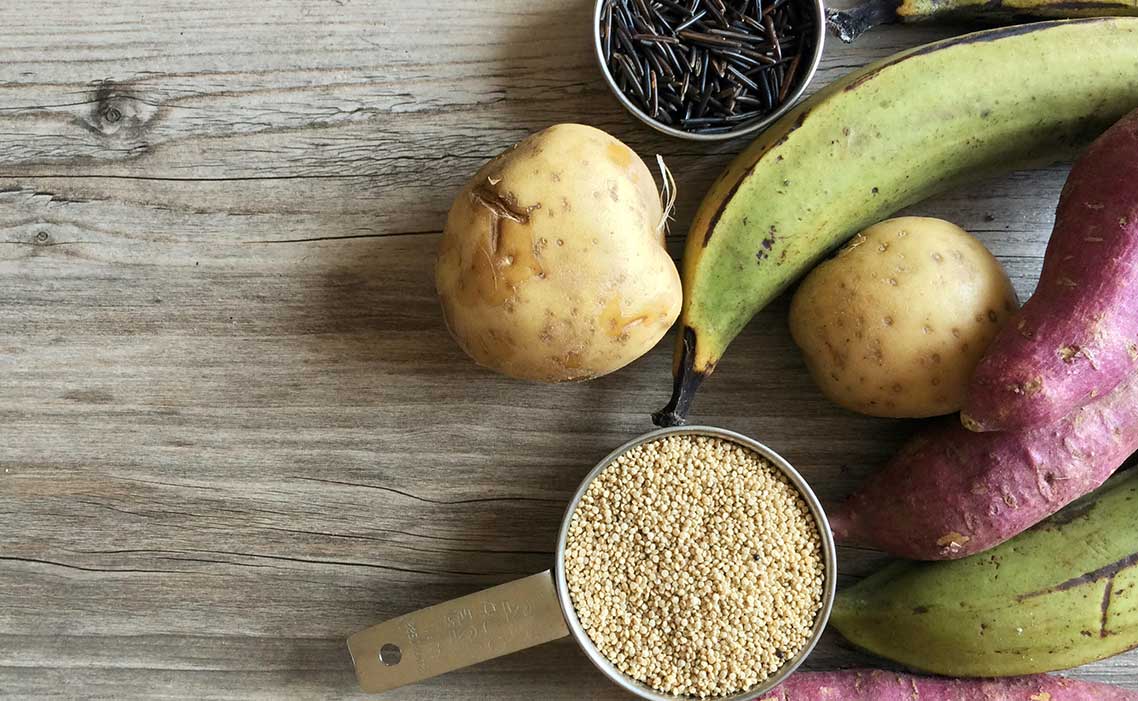The foods we eat before and after a workout have their own purpose, our pre workout meals will help with recovery and fuel your workouts. During a workout whether we are doing endurance or strength training, we tear, break down muscle and use up stored glucose (energy). Post workout our bodies are in repair mode, just like stretching and mobility, the foods we eat will help speed up the recovery process.
Post workout nutrition requires two things: protein to aid in protein synthesis, and carbohydrate to replace muscle glycogen, in other words: both are needed for muscle growth and recovery. If you exercise regularly and intensely, reducing your intake of healthy carbs overtime can lead to a sluggish metabolism, increased levels of stress hormones, and decreased levels of muscle/strength building hormones. You wind up feeling cranky and weak, and obviously that’s no fun. This restriction may help with immediate weight loss – which is mostly water and glycogen – but it is not sustainable and I do not advocate a low carb diet for optimal long term health. It’s about choosing the right type of carbohydrates to consume regularly (without demonizing the occasional treats from our favourite local bakery shop, they have their place too sometimes!).
Why Do We Need Carbs?
• To provide energy for all of our body’s cells
• To replenish glycogen stores that fuel our muscles
• To fuel the brain, nervous tissue, and skeletal muscle (muscles that contract voluntarily)
• To provide dietary fibre
What should I eat post workout?
A whole food meal should be consumed after an intense workout, but it’s not always practical with our busy schedules, or maybe we don’t have an appetite built up yet after the gym. In this case, opt to consume a liquid form of nutrition, and look for drinks that have a 2:1 carb to protein ratio in order to accelerate recovery.
In regards to a whole food post workout meal, protein with some starchy vegetables or grains/legumes is needed since your body digests starch into glucose which directly replenishes muscle glycogen.
Below are some examples of clean burning carbohydrates to incorporate into your post workout meals:
starchy vegetables:
beet, carrot, jicama, parsnip, plantain, potato, pumpkin, sweet potato, squash, yam
whole grains or legumes:
quinoa, millet, buckwheat, spelt, oats, rice, beans, lentils, chickpeas, kidney beans, sprouted or whole grain breads and pastas
fruits:
bananas, peaches, mangos, strawberries, pears, blueberries, apples, grapes, cherries, etc
How many carbohydrates should I be consuming?
Each person is unique when it comes to carbohydrate requirements. An individual’s optimal carb intake depends on age, gender, body composition, activity levels, personal preference, food culture, and current metabolic health. Experiment with your ideal amount.
A guideline to begin with is:
Women = 1 cupped handful of carbs
Men = 2 cupped handful of carbs
Include this with a protein source: 1 palm size for women, 2 palm sizes for men, within a 2 hour window after your workout.
For a meat free option: quinoa or beans + rice count as both a carb and a protein
Here’s an example of my post workout meal pictured below: Salmon fillet, handful of brown rice, and a colourful salad. Make sure to incorporate the other half of your plate with fibrous vegetables and/or leafy greens with every meal to ensure adequate intake of micronutrients and fibre that your body needs every day to eliminate cravings and aid in fat loss.
Overall, being healthy shouldn’t be about restrictions and strict calculations. Consistent exercise and fuelling your body with as many whole food options as possible will ensure successful, sustainable results.
Adopting a healthy lifestyle should never be stressful. If you are looking for more guidance with tweaking your diet for optimal health in order to reach your fitness goals, I can help you take the guess work out of it all and help you transition smoothly. Book your complimentary phone call with me to get started!







Leave A Comment